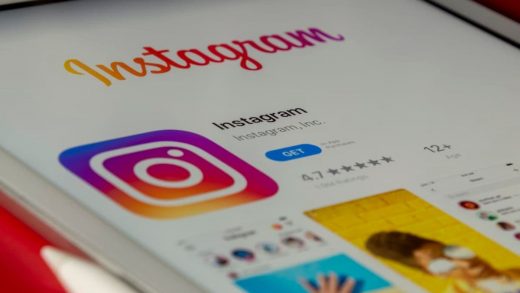:format(webp)/https://www.thestar.com/content/dam/thestar/entertainment/stage/2023/04/08/young-african-and-asian-women-reclaim-their-sexuality-in-vierge-and-love-you-wrong-time/main_photo_maddie_bautista_and_deanna_h_choi_love_you_wrong_time_photo.jpg)
In the basement of a Pentecostal Congolese Church, four teenage girls meet for Bible study, but the conversation soon turns to topics including the sexy pastor, drinking alcohol and whether the Bible is in fact boring.
Elsewhere, two theatre artists perform a song cycle that defies their fetishization as Asian women, including games with the audience they call “rice-breakers.”
Both these productions playing this month in Toronto — “Vierge” by Rachel Mutombo and “Love You Wrong Time” by Maddie Bautista and Deanna H. Choi — explore and challenge young women’s experiences of sexuality and sexualization.
‘The conversations with me and my brothers were different’
Mutombo’s family is from the Democratic Republic of Congo and she was the first of her siblings to be born in Canada. “Vierge” draws on her experience of gendered expectations around sexuality.
“I have several older brothers and our family is Christian … the conversations my parents were having with me and my brothers were different,” she said. “I remember thinking to myself, ‘OK, well, if the girls are all supposed to stay virgins … who are the guys doing it with?’”
“Vierge” means virgin in French (the official language of the DRC), but it has the additional implication of meaning blank or clean. “I think it’s really important, the duality of those things, but also how they’re linked to each other,” said Mutombo, “because there is an idea of virginity being purity, being untouched and untainted.”
First-time playwright Mutombo and “Vierge” director Natasha Mumba met as actors in the award-winning 2019 “School Girls; Or, the African Mean Girls Play,” and Mutombo’s desire to write came directly out of that experience.
“It completely changed my perspective about how African stories could be told onstage and what audiences would be interested in,” said Mutombo of that Jocelyn Bioh play. “It talked about dark subject matter but with a lot of levity and joy.”
“Vierge” casts a light on older generations’ fear of talking about sex, said Mumba. “This play explores the cost of their inactivity, and young people figuring it out by being educated by culture and everything outside the church,” she said. “The play is asking us to re-engage with those traditions and customs to create a way for bigger conversations because, without them, there is a cost.”
‘We want to go beyond talking about how we are perceived’
When talking about “Vierge,” Mutombo underlined that it’s a funny show about serious themes: a quality it shares with Bautista and Choi’s “Love You Wrong Time.” That show draws on the pair’s close friendship, which grew as they explored their similar artistic practices as musicians and sound designers, and their experiences as Asian women.
“Before Maddie and I even met, I was flipping through (the now defunct) NOW magazine,” recalled Choi, “and I saw all these personal ads … and I fell upon the specifically Asian category and the ways that people were being described. I just had the idea of, I wonder what it would be like to do a show about these back pages called ‘Love You Wrong Time,’” she said, punning on the phrase that’s come to be associated in limited and demeaning ways with Asian female sexuality.
With the show, they intend to confront this stereotype, said Bautista. “We want to go beyond the talking about how we are perceived,” she said. The show “talks about how we’re sexualized and fetishized, but we really luxuriate in that … we want to reclaim that in ways that serve us, that feel good for us.”
“We have fun with it, we poke fun at it, and it’s in that humour that we discover more truths about ourselves and our relationships, and what is actually authentic about our desires versus what’s imposed on us,” said Choi.
In the production they call on an “anthology of alter egos” that include, in Bautista’s words, “K-pop superstar wannabes, superhero and magical girls.” The songs are in a wide variety of styles and genres, from K-pop to musical theatre to country to Lada Gaga-style anthems.
As part of their research, the pair ran what Bautista called a “yellow fever hotline” by buying a burner phone and advertising online for people who wanted to have risqué talk with an Asian woman.
“We got a lot of calls,” said Choi.
The one that most caught her off guard was a man who was “just looking for someone to have a drink with and to be their friend,” she said.
“That was the moment when we realized how lonely people are. We initially thought it was all going to be this gross and creepy sexualization. But then a lot of people who called just wanted to talk.”
There were, Bautista underlined, plenty of gross and creepy calls too.
Produced by Bad Muse Collective and presented by Nightwood Theatre, “Love You Wrong Time” is popping up at three very different venues across Toronto: the popular Asian nightlife spot Superfresh, the Emmet Ray whisky bar and the cabaret space at Buddies in Bad Times Theatre.
During our interview, Bautista and Choi tried out one of the show’s “rice-breaker” exercises on me and I’m proud to declare that I guessed each of their backgrounds correctly: Choi is Korean and Bautista is half-Filipina (though I had help, in that Bautista had hinted at Choi’s background already).
“There’s no forced audience participation” in the show, said director and co-creator Erin Brubacher, “but there’s ample opportunity for anybody who wants to be involved much like the way a comedian holds a crowd.”
Such comically pointed exercises — there’s also a game in which audience members take a drink if they’ve been on the receiving end of various microaggressions — are a way of sizing up their audience and having “representation reflected back to us,” said Choi.
“It’s a way of releasing tension as a group and it’s wonderful to watch.”
JOIN THE CONVERSATION
does not endorse these opinions.




